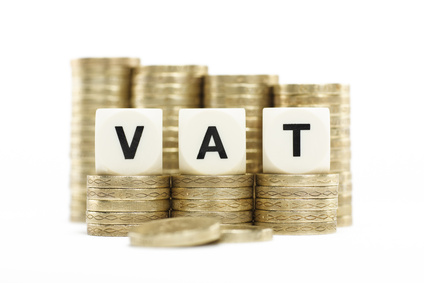 One of our clients asked me today if they still needed to be VAT registered. Their business has changed now they no longer have an employee to help them. So I took some time this morning to calculate whether they would be better off de-registering for VAT.
One of our clients asked me today if they still needed to be VAT registered. Their business has changed now they no longer have an employee to help them. So I took some time this morning to calculate whether they would be better off de-registering for VAT.
There are a number of factors to take into account when doing this because once de-registered you can no longer reclaim VAT on purchases so whilst you might think you have more money coming in you will actually be spending more of that income if there is VAT on your purchases. So you really need to weigh up both the income and the costs of your business when making this decision as well as what the future is likely to be.
If a business wants to de-register from VAT their VAT exclusive income must be below £83,000 per annum and they must remain under this threshold for the following 12 months. When applying for de-registration HMRC will expect the business to explain why their income has reduced and why they expect it to remain below the threshold.
Once HMRC have approved your de-registration you must stop charging VAT from the date you chose to de-register. You must still keep your VAT records for six years. If HMRC find that you should not have de-registered then they will re-register you and you will have to pay the VAT due for the period you should have been registered. It is therefore important to understand what will be happening with your business over the next 12 months before you decide to de-register for VAT.
One thing to bear in mind when de-registering for VAT is that you may have to repay the VAT you have claimed on an asset if the VAT on the asset was more than £1,000. So if you have just purchased a van for your business and have claimed the VAT on it, it is more than likely that you will have to repay that VAT if you de-register soon after.
If your business has changed since you first registered for VAT it is always worth reviewing your accounts to see if it is worthwhile continuing to be VAT registered. For some businesses it makes sense to be VAT registered because they have lots of purchases with VAT they can claim back, or perhaps they are nearly always in a refund situation. Some businesses need to be VAT registered because of the type of work they do or because it makes them look a more established business. But if your turnover has dropped for whatever reason - maybe you are working four days a week now instead of five or perhaps you are doing some employed work outside of your business - then it may be time to de-register for VAT.
To keep your turnover below the £83,000 threshold which you must do for 12 months after de-registering for VAT your income should be less than £6,900 per month.
Take some time to see if it is worth your business de-registering for VAT before Making Tax Digital comes into effect on 1 April. It will save you updating your software or buying software to replace your Excel spreadsheets.
Alongside this it is worth reviewing whether you need to continue as a limited company with a payroll or whether you should return to being a sole trader. There are more cost implications in the former but it is not always the right thing for a business to be a sole trader so you need to check it out with your accountant before making a final decision.
